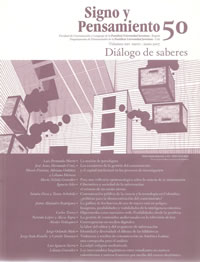Abstract
The article claims the importance of the notion of Paradigm and the knowledge or reflection on the paradigms that we reproduce when guiding our vital action and our understanding of the different facets of the existence. We denominate paradigmatología to the study of the paradigms like logic, semantics and ideological of the knowledge and the practice. Two authors converge to nurture this theoretical domain: Thomas S. Kuhn and Edgar Morin, each one from different perspectives has opened a thought horizon that promotes the debate on the knowledge, their structuring, their history and their incorporation in the academic life and in the investigative production. The paradigms are species of glasses or lanterns that make us visible and audible some phenomena and they hide or they leave on an unconscious trasfondo others. The article concludes with the illustration of a prevailing paradigm in the educational and pedagogic practice that possesses a such power that you has you “naturalized”; it is the paradigm transmisionista of the education in which one conceives and one lives to the language like an instrument, to the knowledge like a representation and to the pedagogy like transmission.This journal is registered under a Creative Commons Attribution 4.0 International Public License. Thus, this work may be reproduced, distributed, and publicly shared in digital format, as long as the names of the authors and Pontificia Universidad Javeriana are acknowledged. Others are allowed to quote, adapt, transform, auto-archive, republish, and create based on this material, for any purpose (even commercial ones), provided the authorship is duly acknowledged, a link to the original work is provided, and it is specified if changes have been made. Pontificia Universidad Javeriana does not hold the rights of published works and the authors are solely responsible for the contents of their works; they keep the moral, intellectual, privacy, and publicity rights.
Approving the intervention of the work (review, copy-editing, translation, layout) and the following outreach, are granted through an use license and not through an assignment of rights. This means the journal and Pontificia Universidad Javeriana cannot be held responsible for any ethical malpractice by the authors. As a consequence of the protection granted by the use license, the journal is not required to publish recantations or modify information already published, unless the errata stems from the editorial management process. Publishing contents in this journal does not generate royalties for contributors.


